*The “special salary coefficient” does not break the structure of the current salary system.
According to the Ministry of Education and Training , over the past 29 years, the policy of "teachers' salaries are given the highest priority in the administrative salary scale system" and in addition to salaries, teachers "have additional allowances depending on the nature of work, by region" has always been identified as a consistent task and solution in the resolutions and conclusions of the Party, from the Resolution of the Second Conference of the 8th Party Central Committee in 1996 on strategic orientation for education and training development in the period of industrialization and modernization; Resolution No. 29 on fundamental and comprehensive innovation of education and training; Conclusion No. 91-KL/TW in 2024 on continuing to implement Resolution No. 29-NQ/TW. Most recently, the Politburo issued Resolution 71 on breakthroughs in education development, which clearly stated: "There are special and outstanding preferential policies for teachers".
The above documents are important political bases for the National Assembly to stipulate that "Teachers' salaries are ranked highest in the administrative career salary scale system" at Point a, Clause 1, Article 23 of the Law on Teachers and stipulate "Preferential allowances for jobs and other allowances according to the nature of work, according to the region as prescribed by law" at Point b, Clause 1, Article 23 of the Law on Teachers. From there, establish a legal basis for the Government to concretize the contents in the Decree regulating salary policy and allowance regime for teachers according to the requirements of the National Assembly. Thus, "special salary coefficient" is a specific policy solution to implement "Teachers' salaries are ranked highest in the administrative career salary scale system", with political and legal basis.

The Ministry of Education and Training believes that the regulation of "special salary coefficient" does not disrupt the design of the current salary system because the special salary coefficient is only used to calculate the salary level (which is the basic salary calculated according to the current salary coefficient). Basically, with this calculation method, the salary scale of teachers still uses the general salary scale for civil servants of public service units, only with the addition of a special coefficient to ensure the principle that "teachers' salaries are ranked highest in the administrative career salary scale". The special salary coefficient is also not used to calculate the allowance level, not used to calculate the amount of the reserved difference coefficient according to Circular No. 07/2024/TT-BNV dated July 5, 2024 of the Ministry of Home Affairs guiding the implementation of the basic salary level for subjects receiving salaries and allowances in agencies, organizations, and public service units of the Party, the State, the Vietnam Fatherland Front, socio-political organizations and associations. Therefore, the “special salary coefficient” does not break the structure of the current salary system. On the other hand, when implementing the new salary policy, the conversion is still guaranteed to be convenient and maintain the special coefficient for teachers.
Also according to the Ministry of Education and Training, education is not the only sector that enjoys seniority allowance. According to the provisions of Point a, Clause 8, Article 6 of Decree No. 204/2004/ND-CP, which was amended and supplemented in Clause 2, Article 1 of Decree No. 76/2009/ND-CP, seniority allowance applies to officers and professional soldiers of the People's Army, officers and non-commissioned officers receiving salaries of the People's Public Security, people working in key organizations and officials and civil servants whose salaries are classified according to specialized ranks or titles of customs, courts, prosecutors, auditors, inspectors, civil enforcement, and forest rangers. However, according to Resolution No. 27-NQ/TW, when the Government issues a new salary policy, seniority allowance only applies to the army, police, and key agencies. Thus, teachers belonging to the positions no longer have seniority allowance when implementing the new salary policy. With regard to the regulations on teachers' salaries, as stated above, the regulations on salaries are independent of the regulations on allowances.
Regarding salaries, the National Assembly stipulates that "Teachers' salaries are ranked highest in the administrative career salary scale system", this provision only relates to the salary scale that teachers are ranked in, not to the types of allowances that teachers are receiving. Since determining that "education and training is the top national policy" and teachers "are the decisive factor in the quality of education and are honored by society" (from the Resolution of the 2nd Conference of the 8th Party Central Committee in 1996), the Party also determined the policy of ranking teachers' salaries "highest" in the administrative career salary scale system to match the position and role of teachers. However, the actual ranking of teachers' salaries is not as the policy that the Party has determined for the past 29 years, teachers' salaries are not currently ranked highest in the administrative career salary scale system, even the majority of teachers are ranked in a lower salary scale.

Currently, 12% of teachers are ranked in 3 salary groups: A1-A2.1-A3.1, but almost 100% of civil servants in other sectors and fields are ranked in these 3 salary groups. Of these, only a maximum of 1.17% of senior teachers (grade I) are ranked in the highest salary scale (including A3.1 and A3.2), while other sectors have a maximum of 10% of civil servants ranked in the A3.1 salary scale. 88% of teachers are ranked in lower salaries than civil servants in other sectors and fields; 88% of these teachers can enjoy the highest salary coefficient of 6.78, while civil servants in other sectors can enjoy the highest salary coefficient of 8.0 (about 1.18 times higher). Meanwhile, teachers must have a training level that meets the prescribed standards.
Even 100% of preschool teachers are ranked at the lowest salary in the administrative career salary scale system, in which the starting coefficient of grade III preschool teachers is 2.10 while grade III titles of other civil servants are 2.34 (about 1.11 times higher); the starting coefficient of grade II preschool teachers is 2.34 while grade II titles of other civil servants are 4.4 (about 1.88 times higher); the starting coefficient of grade I preschool teachers is 4.0 while grade I titles of other civil servants are 6.2 (about 1.55 times higher); the highest salary coefficient that preschool teachers can receive is 6.38, while the highest salary coefficient that civil servants can receive is 8.0 (about 1.25 times higher).
In reality, with this salary arrangement, the teaching profession has not been recognized and honored as it deserves as determined by the Party's policies. The career of "cultivating people" requires teachers to be dedicated, love their profession and students; have extensive knowledge, pedagogical skills, communication skills, self-study awareness, the ability to continuously update and must build the image of an exemplary teacher to educate students through example. Therefore, it is necessary to look at the overall administrative career salary scale to arrange teachers' salaries commensurate with the position and role determined by the Party in resolutions and stipulated by the National Assembly in the Law on Teachers.
Salary policy is not a "favor" but a worthy treatment for teachers.
Also according to the Ministry of Education and Training, in Clause 4, Article 23 of the Law on Teachers, the National Assembly assigned the Government to specify the salary and allowances for teachers. Thus, the responsibility to specify the regulation "Teachers' salaries are ranked highest in the administrative career salary scale system", realizing the Party's policy that has been determined for nearly 30 years is not the sole responsibility of the Ministry of Education and Training but the shared responsibility of relevant ministries and branches to advise the Government on specific policy solutions to carry out the tasks assigned by the National Assembly.
The Ministry of Education and Training's proposal of policy contents in the draft Decree regulating salary policies and allowance regimes for teachers is entirely to carry out the tasks assigned by the National Assembly and the Government according to the provisions of the Law on Teachers; ensuring compliance with the Party's policies in the Resolutions and Conclusions related to teachers' salaries; and complying with the salary regulations prescribed by the Law on Teachers. The draft Decree is currently being sent to relevant ministries, branches, localities, agencies and organizations for wide consultation. The comments sent in are mostly in agreement with the provisions of the draft Decree. The Ministry of Education and Training will synthesize the comments and submit them to the Government for consideration and decision.
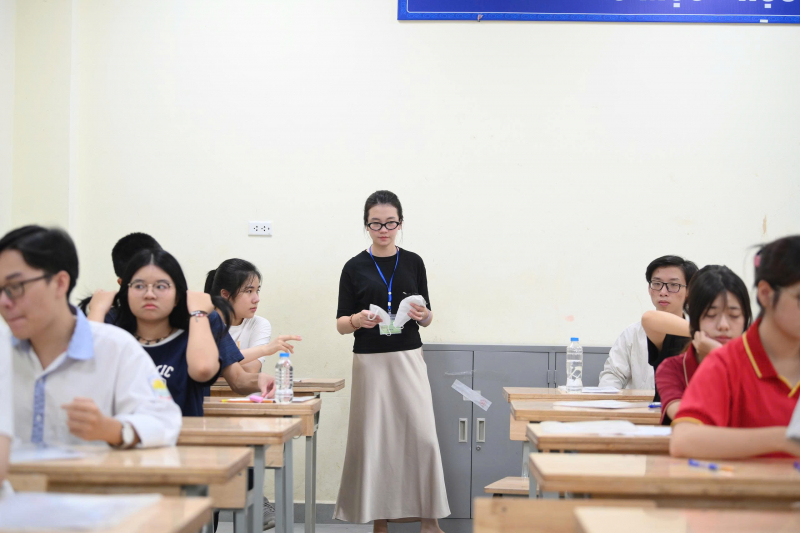
On the other hand, it is also necessary to affirm that the ranking of "Teachers' salaries at the highest level in the administrative career salary scale" is not a "favor" but a worthy treatment for teachers. Paying high salaries is a way to recognize the value of a certain profession. With the special characteristics of labor, creating products of knowledge and a highly qualified labor force; taking on the role of "deciding the future of the nation" as Resolution 71 of the Politburo has just issued, then "having a special coefficient" so that teachers' salaries are the highest in the administrative career salary scale is a worthy treatment for the role, position and responsibility of teachers...
In addition, it must be added that when the Law on Teachers was promulgated, teachers across the country were very excited and looked forward to the Government's detailed regulations on teachers' salaries being ranked highest in the administrative career salary scale system. Therefore, the regulation on "special salary coefficient" received the agreement and support of many relevant agencies, units and individuals, especially the expectations of teachers nationwide.
The Ministry of Education and Training will continue to perfect the content of the regulations to demonstrate the consistency of the Party and State's policies and viewpoints on teachers' salaries over the past 30 years as mentioned above. At the same time, it will coordinate with the Ministry of Finance to calculate and determine the budget source to implement the policy contents in the Decree, ensuring feasibility with the socio-economic development situation of the country.
Source: https://cand.com.vn/giao-duc/bo-giao-duc-va-dao-tao-neu-ly-do-de-xuat-he-so-luong-dac-thu-doi-voi-nha-giao-i788054/


![[Photo] Unique architecture of the deepest metro station in France](https://vphoto.vietnam.vn/thumb/1200x675/vietnam/resource/IMAGE/2025/11/14/1763107592365_ga-sau-nhat-nuoc-phap-duy-1-6403-jpg.webp)



![[Photo] Unique art of painting Tuong masks](https://vphoto.vietnam.vn/thumb/1200x675/vietnam/resource/IMAGE/2025/11/14/1763094089301_ndo_br_1-jpg.webp)








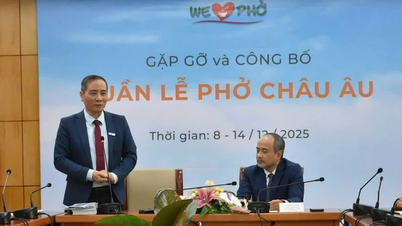







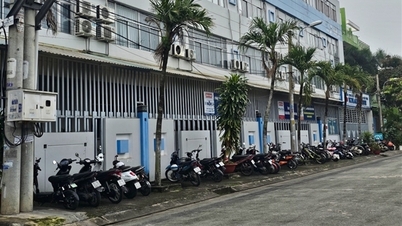



![[Photo] Special class in Tra Linh](https://vphoto.vietnam.vn/thumb/1200x675/vietnam/resource/IMAGE/2025/11/14/1763078485441_ndo_br_lop-hoc-7-jpg.webp)













































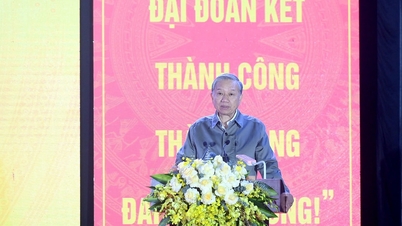



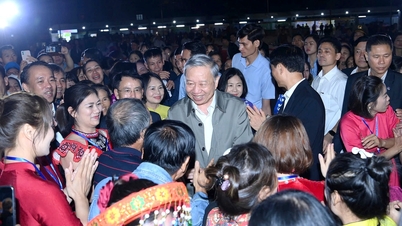
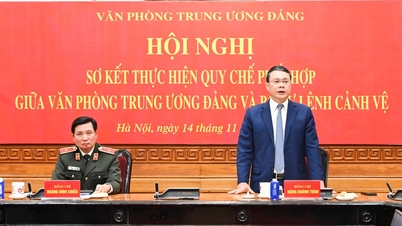
























Comment (0)